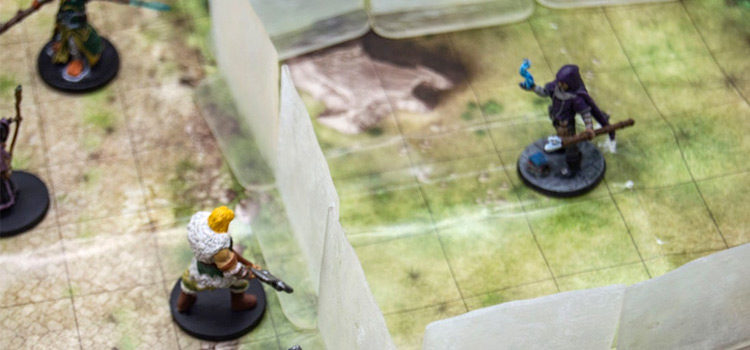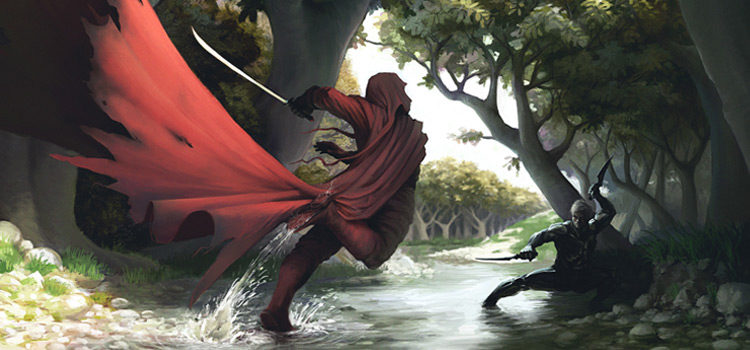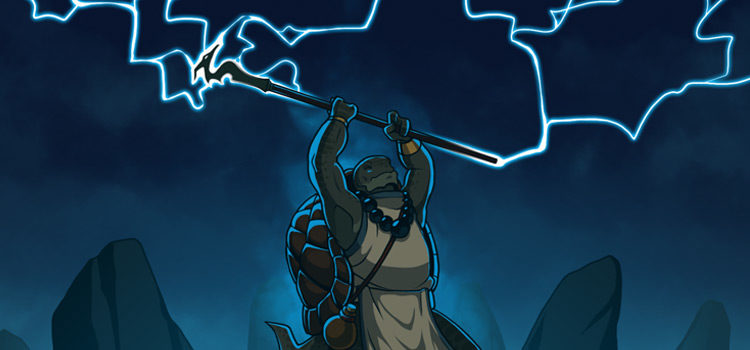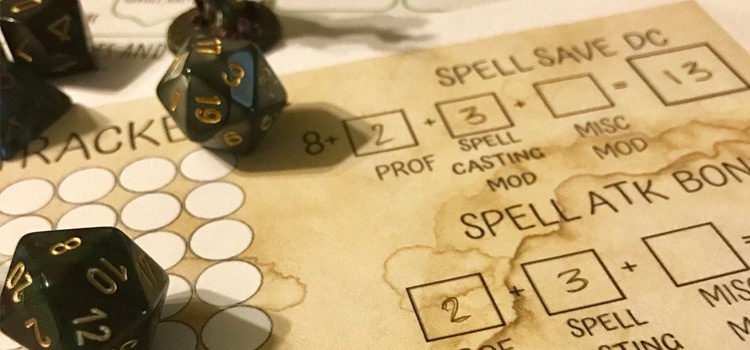What is Expertise in D&D 5e (And How Does It Work?)
This post may contain affiliate links. If you buy something we may get a small commission at no extra cost to you. (Learn more).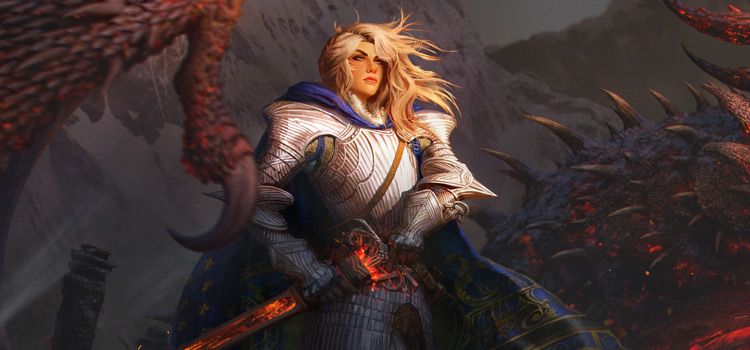
Expertise is a class ability that allows a character to double their proficiency bonus on a skill.
As one of the few class abilities that lets you transcend the 5e’s soft bonus cap of +10, it is incredibly useful, and in a few cases it’s worth multiclassing solely for this skill.
But, not in every case.
As a fighter, you really don’t need that +15 to acrobatics, and the 3 levels you multiclassed into bard to get it could be much better spent somewhere else.
In this guide we’ll be talking about what classes get expertise, when you should multiclass, and how expertise might just be the best generalist skill in the game.
Who Gets Expertise?
Bards (lvl 3) and Rogues (lvl 1) foremost, they have a kind of “perfect” expertise which allows them to pick any of their skills and double their proficiency.
At the next level down, Knowledge Clerics (lvl 1) get class based expertise which lets them gain expertise on skills Knowledge Clerics specialize in (Arcana, History, Nature, or Religion).
The level below that would be the extraordinarily specific class/race expertise. Dwarven Stonecunning allows expertise on History checks made about stone work, and Draconic Sorcerers get the bonus in Charisma when talking to dragons the same type as themselves.
These are situational, and are really more of a minor boon than something that should be sought after.
At probably the most difficult to achieve the Practiced Expert feat from the Unearthed Arcana playtest manual.
Not only is this subjective to DM approval, but you only get expertise in one skill. And have to sacrifice an Ability Score increase to get the feat.
Clearly some forms of expertise are more valuable than others.
So for our purposes we’ll mostly be focusing on Bards and Rogues, and when you should be multiclassing.
How To Get Expertise If You’re Not a Bard/Rogue
Like I said, I think multiclassing really is the best option.
Though feats and race skills exist, they don’t hold a candle to the options that a Bard or a Rogue’s expertise will offer you.
Multiclassing is always a difficult choice in D&D. Because although it can open up new skills and ways of playing, it essentially keeps your primary class behind however many levels you decide to multiclass.
You should always make sure that whatever you’re gaining from multiclassing is worth being behind that many levels.
Unless you are using this skill 2-3x per session, I do not think multiclassing for expertise is necessary. You will do just fine without it.
I’m going to tell you my top picks for what I think the multiclass synergies are, but even with the solid compatibilities of the classes I’m recommending, I wouldn’t recommend multiclassing 100% of the time, mostly for the reason stated above.
I would recommend taking one of two paths, both of which I will go over with greater detail below.
The first path is a more support centric build, the Bard 3 multiclass. I usually recommend casters take this route as it gives you a really easy bonus action way to help out the team.
The second is the damage focused build, either multiclassing as Rogue 1, Rogue 2, or Rogue 3.
Essentially it’s a gradient of how Roguelike you want to become. Usually melee focused builds do really well with this, it gives them more options on how to engage, and more to do outside of combat.
The Bard 3 Build:
We’ll do Wizards as an example here, because I think they have the most to gain. But this can benefit any caster class and really any class that doesn’t have a solid bonus action ability.
Wizards are incredibly potent, but lack a couple features that stop them from being applicable in many scenarios. Specifically, melee combat proficiency and bonus action options.
Bard 3 covers these weak spots in two ways.
One, if you decide to subclass your Bard 3 into the School of Valor you get proficiency with medium armor, shields, and martial weapons. You may not have the most phenomenal physical stats to back them up, but you can use them in a pinch.
And two, you gain access to Inspiration as a powerful bonus action ability. That means you can still fling fireballs and support your team in a direct, meaningful way. Not that fireballs aren’t meaningful.
But at least the Monk who refused to move can now add a d6 to his dex save.
All of this is on top of the expertise ability you would be gaining access to. You can pump arcana, and never misread a magical trap again, or insight and be able to counterspell like the gods.
Regardless, I think this is a very strong multiclass, but I wouldn’t necessarily recommend taking it until you’re already Wizard 5 or 7, and you have access to the strong mid-level spells.
The Rogue X Build:
Here we’re going to cover Fighters, but like before this is applicable to pretty much any class.
On the whole I think the Rogue 1 multiclass is much more reasonable, and normally the better option than the Bard 3 multiclass.
For one, you’re only dropping one level into Rogue, and you get some pretty significant benefits.
You gain access to proficiency with Thieves Tools (which are relatively cheap at 25gp), and two more skills. That’s already pretty good for a level up.
Then there’s the Sneak Attack ability:
“Once per turn, you can deal an extra 1d6 damage to one creature you hit with an attack if you have advantage on the attack roll.”
The intended use is for sneak attacks, like the name of the ability suggests, but lets run through a scenario.
You, as a Fighter 3 Rogue 1 (who was subclassed into Battle Master) with a strength of 16 (+3), decide to attack.
The first turn you decide to swing your greatsword like normal, 2d6+3, and use your bonus action to use the Feinting Attack ability the Battle Master has.
“Feinting Attack- You can expend one superiority die and use a bonus action on your turn to feint, choosing one creature within 5 feet of you as your target. You have advantage on your next attack roll against that creature. If that attack hits, add the superiority die to the attack’s damage roll.”
The next turn you attack, you have advantage, which fulfills the Sneak Attack abilities requirements.
Your greatsword cleaves through the air and you would deal 2d6+3+d8(superiority die)+d6(sneak attack). Gods forbid you crit and double all the damage dice rolled.
This can then be repeated every bonus action you have for as many superiority die that you have. It’s not the best damage output conceivable. But considering all of the other strengths of the Battle Master, it’s definitely a plus.
The best part of this build is that for every few levels you pop into rogue you gain more Sneak Attack dice, and more ways to use them.
And for every few levels you pop into Fighter you get better/more superiority dice, and more options in head to head combat.
These classes are ridiculously synergetic. And this same synergy comes with really any class that can give itself advantage on an attack.
The question then is how roguelike you intend to become, and then really the sky’s the limit.
Plus you know, expertise and whatnot. That’s pretty cool too.
When To Look For Expertise
The expertise ability is incredibly good.
It gives greater consistency to classes that would be making skill checks often.
Those classes are primarily Bards, who’s whole gameplay revolves around feats of Charisma, and the Rogues, who have to pass their sneak check or their kit is much less effective.
Most other classes don’t necessarily need to succeed at skill checks 100% of the time to fulfill their class role. So the expertise bonus is more of a nice plus for them.
That’s why I only really recommend multiclassing to Bard 3 or Rogue X if you want to play a character that is an amalgamation of the classes.
If you’re playing a charismatic traveling magician, or a bounty hunter who’s not afraid to do what he needs to in order to secure a capture, then multiclass into these classes.
The Player’s Handbook, though it gives a valiant attempt, cannot play out every possible character idea someone might have.
Some things are difficult to express through just one class or subclass, so don’t be afraid to mess around with multiclassing.
Nothing is suboptimal if it better fits your character.
